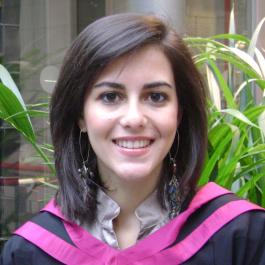Eleni Philippou

Eleni Philippou
It seems apt that having been born and raised in South Africa, a country with 11 official languages, I would come to work on a research programme committed to linguistic diversity! Of course, even if the UK has only one official language, it turns out to be an equally multilingual and diverse space, as I soon learned when I moved to England to pursue my postgraduate studies. At Oxford, I completed my DPhil in English Literature working on Theodor Adorno’s critical theory. During the course of the thesis, in order to better engage with Adorno’s writing, I took a German reading course at the Oxford Language Centre (no, Adorno isn’t any more comprehensible in German!), and began working more consistently at my Modern Greek (something I had somewhat neglected after finishing secondary school).
In recent years, especially after my appointment at Oxford Comparative Criticism and Translation (OCCT), the interdisciplinary research programme based at St Anne’s College and The Oxford Research Centre for the Humanities, my research has moved strongly towards translation theory and practice, and I have become increasingly interested in the textual strategies involved in the translation of peripheral languages, such as Modern Greek. One of my key duties at OCCT is to develop and stage events that engage with various formulations of world literature and translation theory. I organised Oxford Translation Day in 2016 and 2017 and thoroughly enjoyed bringing talks, seminars, and performances that showcased the prismatic nature of language to the Oxford community. Moreover, I was extremely excited to judge the Oxford Weidenfeld Translation Prize in 2017, as it gave me the chance to admire translations from a myriad of living European languages.
Furthermore, I am an active poet, with a number of my poems published in both British and international anthologies and journals. My poems, written in my native English, often make use of Modern Greek words or phrases: I see them as active embodiments of creative multilingualism! My poems have been translated into German, Polish, and Greek, which gives them an added polyglottal dimension.